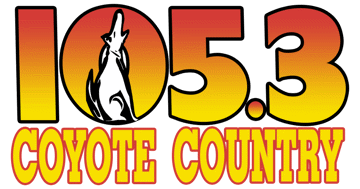Economic Engine: UNK has a $446 million impact on state
-2025-04-02-08-29-47.jpg?width=610)
KEARNEY – Jerry Catlett sees the University of Nebraska at Kearney’s impact on a daily basis.
As president and chief operating officer of Bruning Bank, he travels to communities across the region that rely on UNK graduates to thrive and grow.
From teachers and health care workers to business owners and agricultural producers, these professionals are an integral part of rural Nebraska’s success.
“UNK contributes greatly to the economy in this area and the lives of the people who live here,” Catlett said. “It’s a real asset for not just Buffalo County and Kearney, but also for central and western Nebraska as a whole.”
According to a recently released economic impact report, UNK generates $446.5 million for the state’s economy each year, including $12.3 million in state and local tax revenue. The university supports nearly 3,700 jobs, but that figure doesn’t tell the entire story.
With more than 36,000 alumni living in the state, UNK plays a key role in workforce development. Lopers can be found in every county, contributing to communities both small and large.
At Bruning Bank, which has six locations across central Nebraska, nearly 20% of the employees are UNK graduates. This includes Catlett, who attended Kearney State College on an athletic scholarship and earned a degree in economics.
“Coming out of high school, I wasn’t ready to go to a larger university or someplace out of state. Being a small-town kid, I was better suited for a place like Kearney,” the Ansley native said. “For students who grow up in similar situations, it’s vitally important to have a school like UNK where they can get a high-quality education that puts them on par with someone from any other college or university in the country.”
Catlett also holds a degree from the Graduate School of Banking at the University of Wisconsin-Madison. He’s worked in community banking for more than four decades, including the past 32 years with Bruning Bank.
Currently, he serves on the UNK Chancellor Search Advisory Committee, Only in Nebraska UNK Campaign Committee and College of Business and Technology Dean’s Leadership Council, where he helps support and guide the next generation of business professionals.
“I owe a lot of my success to the mentors I’ve had and the people I’ve met at UNK,” Catlett said. “Now, I’m trying to make the same impact for current UNK students.”
KEY DRIVER FOR KEARNEY
Conducted by national consulting firm Tripp Umbach, the economic impact report also highlights the significant benefits UNK brings to the Kearney area.
In Legislative District 37, which includes Kearney, Gibbon and Shelton in Buffalo County, the University of Nebraska adds $203.5 million to the economy each year and supports nearly 1,700 jobs.
Among Kearney residents, approximately 1 in 6 people have a degree from UNK.
“The impact of UNK cannot be overstated,” said Stan Clouse, who served as Kearney’s mayor for 18 years before he was elected to the Nebraska Legislature in 2024. “What separates Kearney from other communities our size is the fact that we have UNK in our midst. The economic impact and the energy that our students bring to this community really make Kearney stand out.”
Derek Rusher agrees. The Kearney Area Chamber of Commerce president and CEO called UNK an “economic engine” for central Nebraska.
“UNK fuels our businesses, creates jobs and strengthens our local economy. A strong workforce starts with a strong university, and the Kearney Area Chamber of Commerce recognizes UNK as a key driver of our region’s economic and workforce success,” Rusher said. “As a chamber, we are proud to collaborate with UNK to connect students with local businesses, ensuring a pipeline of talent that strengthens our community and fuels long-term economic growth.”
The University of Nebraska System continues to be a vital driver of the statewide economy, with an annual impact reaching $6.4 billion – a $600 million increase over the past three years. For every $1 invested by the state in the NU System, $10 is returned to Nebraska’s economy.
NU also sustains a highly skilled workforce for the state, supporting 1 in 20 jobs and producing 11,000 graduates annually. More than 100,000 former NU System students are employed in the state.
“The numbers speak for themselves,” said Paul Umbach, founder and president of Tripp Umbach. “Since 2015, the University of Nebraska’s economic impact has grown by 64%, far outpacing the state’s overall economic growth of just 24%. What’s remarkable is that NU isn’t just keeping pace – it’s leading the way in job creation, workforce training, research and innovation.”
Umbach has worked with more than 1,000 institutions across the nation and around the world. While many institutions’ economic impact has plateaued, he noted, the University of Nebraska’s trajectory continues to grow.
“Per capita, the University of Nebraska does more to impact its state than any other university in America,” Umbach said.
